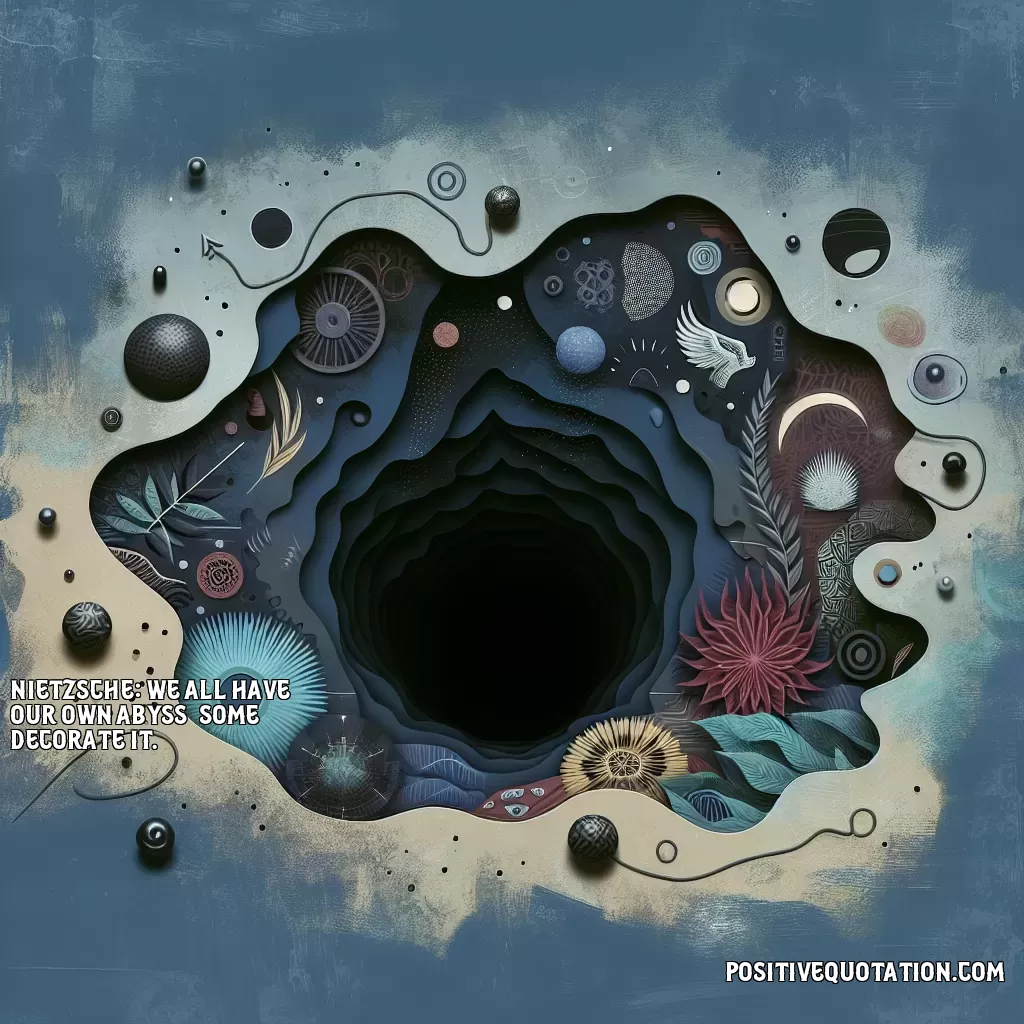
Nietzsche: We all have our own abyss some decorate it.
Author: Friedrich Nietzsche
👁️ 12 views
Friedrich Nietzsche, a profound philosopher renowned for his exploration of deep existential concepts, once stated, "We all have our own abyss; some decorate it." This quote can be unpacked to reveal a layered understanding of human nature and the existential challenges we face. An "abyss" in Nietzsche’s context typically symbolizes a deep, unfathomable void or chasm within us. It represents the darker, more complex aspects of human existence—our fears, doubts, anxieties, and confrontations with meaninglessness or despair. Everyone possesses this internal abyss, a metaphorical space where we grapple with our most profound existential questions and insecurities. When Nietzsche says, "some decorate it," he is alluding to the various ways individuals cope with or respond to these inner voids. Decorating the abyss can imply several things: it could suggest masking or embellishing these inner struggles, perhaps by distracting oneself with external pleasures, accomplishments, or superficial engagements. It also indicates a personal approach to managing these darker aspects, suggesting that some might attempt to make peace with, understand, or even redefine their internal chasms in a creative and personal manner. This process can be seen as an attempt to bring order or beauty to chaos. For instance, artists, writers, and thinkers often "decorate" their abysses by channeling their inner turmoil into creative expression, fashioning something meaningful from it. Others might find solace or purpose through spiritual practices, relationships, or personal achievements. Nietzsche's insight here underscores the universality of internal struggle while highlighting the individuality in how we manage our existential uncertainties. Each person is tasked with their own unique journey of confronting and interpreting this abyss, ultimately reflecting their personality, choices, and the ways they find meaning in life.
Quote By: Friedrich Nietzsche
Friedrich Nietzsche (1844-1900) was a German philosopher, cultural critic, and poet known for his provocative ideas on morality, religion, and the nature of existence. He famously declared the "death of God" and introduced concepts such as the "Übermensch" and "eternal recurrence," challenging traditional values and pushing for a re-evaluation of societal beliefs. His influential works, including "Thus Spoke Zarathustra" and "Beyond Good and Evil," have left a lasting impact on philosophy, literature, and psychology.
Bio added on: 2025-02-15 02:56:26